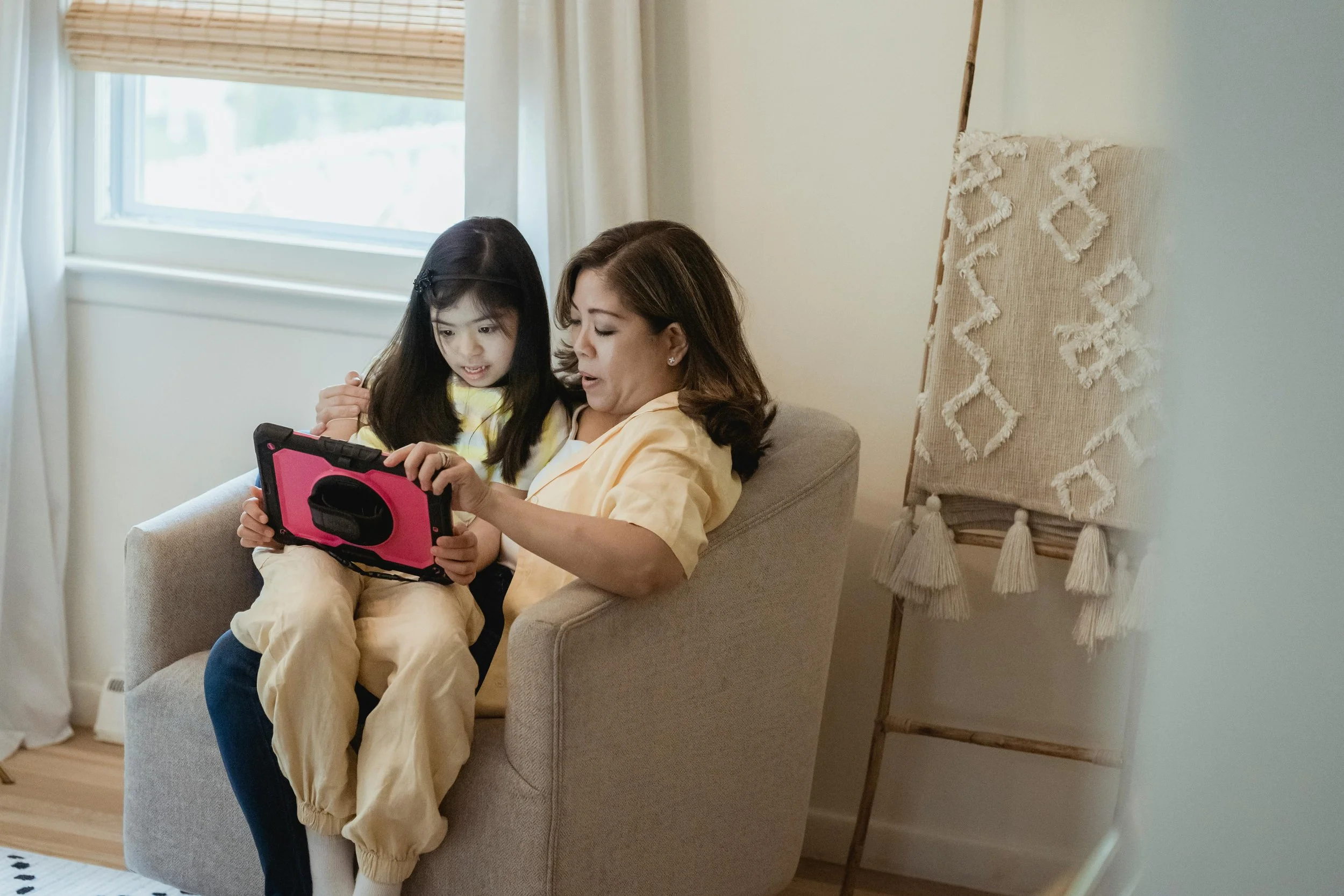
Family Therapy in Surrey
When tension becomes the norm, it’s time to repair
If you’ve noticed that conversations at home easily turn into arguments, silence has replaced connection, or everyone seems to be walking on eggshells, you’re not alone. Families are deeply interconnected systems. When one part feels strained, the effects ripple through everyone.
You may be dealing with parenting disagreements, teen withdrawal, past ruptures that haven’t healed, or stress from major life changes. You may even be carrying emotional wounds that began in your own family of origin. Whatever the entry point, family therapy can help you move from disconnection toward understanding, respect, and shared strength.
What Is Family Therapy?
Family therapy, also called family counselling, is a relational form of therapy that includes two or more members of a family working together toward change. This kind of therapy is not about assigning blame. It’s about recognizing the patterns, roles, and unspoken dynamics that shape how you interact and how conflict unfolds.
At Tidal Trauma Centre, our family therapists bring a trauma-informed lens to the work. We consider nervous system responses, attachment styles, intergenerational dynamics, and emotional safety, not just surface-level behaviours. Whether we’re working with a parent and child, a couple navigating co-parenting, or an entire household, our focus is on helping the family system become more regulated, connected, and equipped to handle challenges together.
How Can Family Therapy Help?
Family therapy isn’t just about putting out fires. It’s about understanding why the fires keep starting in the first place.
You might benefit from family therapy if:
Conversations frequently spiral into conflict or shutdown
Communication feels tense, unclear, or avoidant
You’re navigating a major life change like divorce, loss, or relocation
One family member is struggling with mental health or behaviour, and it’s impacting everyone
Your family is recovering from trauma, betrayal, or ruptures in trust
You want to reconnect after periods of distance or disconnection
Sometimes families come to therapy in crisis. Other times, they come preventatively, because they care about how they show up for one another and want to stay connected through life’s challenges. There’s no wrong time to start.
What Happens in Family Therapy?
Our process is always customized, but here’s what you can generally expect:
Initial Assessment
We start by getting to know your family system. Who’s involved, what brings you in, and how you’ve been managing so far. This may involve joint or separate sessions depending on what’s appropriate.Clarifying Goals
Your therapist will help your family articulate what change looks like, whether that’s less yelling, better emotional regulation, smoother transitions, or simply feeling like a team again.Relational and Emotional Work
Using techniques grounded in Emotion-Focused Therapy (EFT), AEDP, and somatic regulation, we work to bring deeper emotions into the room and foster safer, more attuned interactions.Communication Skills and Repair Tools
You’ll learn how to speak and listen in ways that promote understanding rather than defensiveness. We’ll practice conflict repair, boundary-setting, and de-escalation strategies that you can carry into daily life.Continued Support and Integration
Family therapy is not about fixing everything in one session. It’s about building a stronger foundation over time — one that supports emotional resilience and connection long after therapy ends.
Our Approach: Trauma-Informed, Emotionally Grounded
At Tidal Trauma Centre, we recognize that many families are carrying more than just miscommunication. There may be histories of trauma, abandonment, cultural rupture, or intergenerational pain. Our therapists are trained to hold complexity and help families heal with care, clarity, and respect.
We integrate:
EMDR and IFS to understand personal and relational patterns rooted in past wounds
Emotion-Focused Therapy (EFT) and AEDP to support deep emotional processing and repair
Somatic and nervous system practices to help families regulate together, not just speak more calmly
Attachment-based strategies to foster secure bonds between caregivers, children, and siblings
This layered approach allows us to move beyond symptom reduction and toward real, lasting relational change.
Who Is Family Therapy For?
Family therapy can support:
Parents and children navigating emotional, behavioural, or school-related challenges
Families facing major life transitions (separation, death, blended family dynamics)
Parents and teens struggling to connect or communicate
Families with a neurodivergent child or parent
Adult siblings wanting to repair or redefine their relationship
Multi-generational households navigating boundary-setting and care responsibilities
You don’t have to fit into a single category. If your family system is under strain and you're looking for support, you belong here.
Confidentiality and Emotional Safety
One of the most common concerns we hear is: “What if someone says something hard in session?”
Our answer: that’s where healing starts, with truth held respectfully. Family therapy is a confidential space where each member’s voice matters. Your therapist will ensure emotional safety for everyone in the room, pacing the process so no one feels exposed, attacked, or silenced.
Our Clinic in Cloverdale, Surrey
In-person therapy sessions are held at our counselling centre in Cloverdale, a neighbourhood within Surrey, BC.
We are easily accessible from Langley, South Surrey, Delta, White Rock, and Vancouver with free parking available.
Online family therapy sessions are also available.
Next Steps
Fill out a New Client Form and we’ll match you with one or more counsellors who specialize in Family Therapy.
Book a free consult or appointment using our secure online platform, whenever you’re ready.
Not sure how to choose a therapist?
Client Guide to Consult Calls.
FAQs About Family Therapy
-
Yes. While it’s ideal for multiple members to participate, even partial attendance can lead to meaningful shifts in dynamics. Therapy can still support the attending members in navigating conflict and change.
-
Our therapists are skilled in adjusting sessions based on developmental age. We may meet with parents separately, use play-based techniques, or include children briefly depending on their readiness.
-
Most families start with weekly or bi-weekly sessions. Your therapist will work with you to find a sustainable rhythm that supports progress without overwhelming your schedule.
You Might Also Be Interested In:
Blogs
When Everyone Is Doing Their Best and It Still Isn’t Working: How Family Therapy Helps
Why Family Conflict Often Intensifies During Times of Transition
When One Person Is Carrying the Emotional Weight of the Family
Why Communication Tools Don’t Work When Emotions Run High in Families
When Family Roles Get Stuck: How Counselling Helps Create Healthier Patterns



